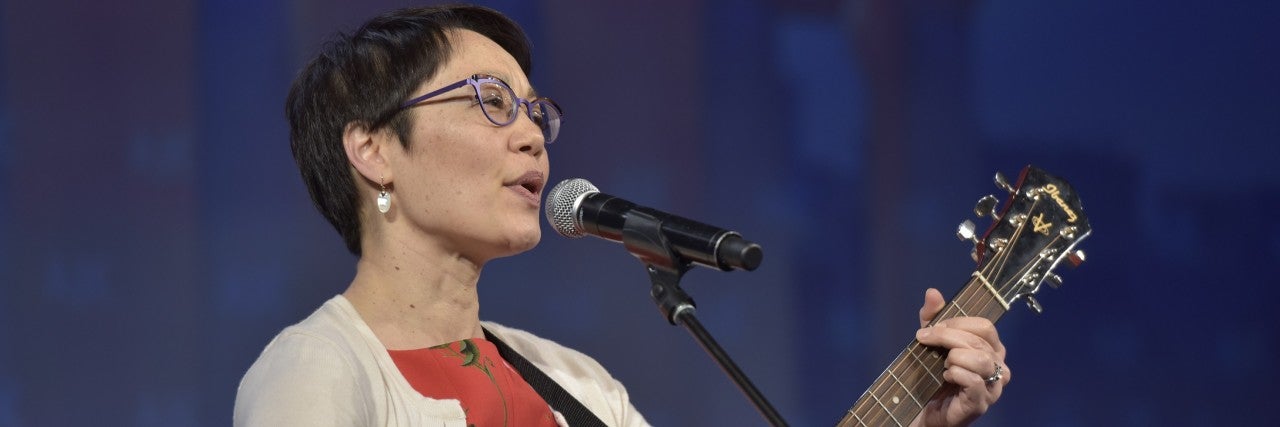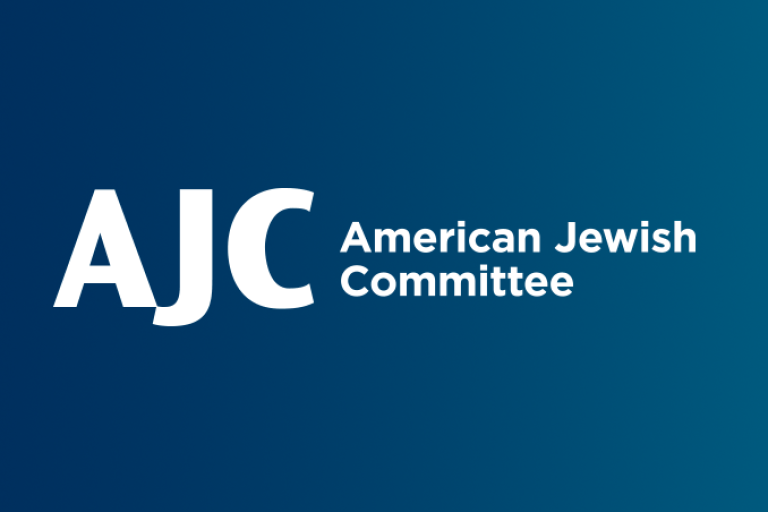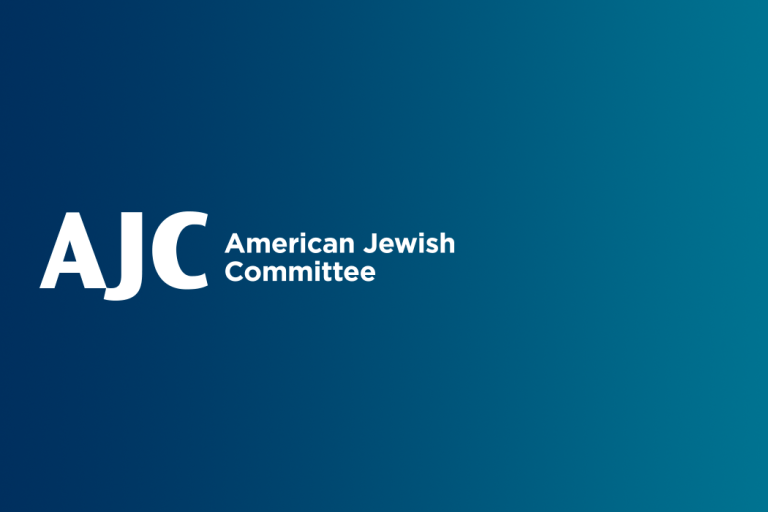July 2, 2020
On this week’s episode of People of the Pod, we are joined by Rabbi Angela Buchdahl, Senior Rabbi of Manhattan’s Central Synagogue and member of AJC’s Board of Governors, to discuss the Jewish community’s obligation toward Jews of color and to social justice. Then, in one of the most compelling sessions from AJC Virtual Global Forum, we hear a foreign policy debate between Antony Blinken, Deputy Secretary of State under President Barack Obama and now an adviser to Democratic presidential candidate Joe Biden, and KT McFarland, past Deputy National Security Advisor under President Donald Trump.
In early July, Rabbi Angela Buchdahl, Senior Rabbi of Manhattan’s Central Synagogue and a member of AJC’s Board of Governors, joined AJC’s weekly podcast, People of the Pod, for a discussion on the Jewish community’s obligation toward Jews of color and to social justice. Buchdahl is the first Asian-American to be ordained as a rabbi and is Central Synagogue’s first female senior rabbi.
Buchdahl believes that Jews are at a turning point in the fight for racial justice. “I’m seeing things that make it feel different than other times that there have been unjust deaths of unarmed black men and women,” she said.
As an example, Buchdahl discussed how corporations have recently taken steps to improve their diversity practices. She also noted that many companies this year created ways to observe Juneteenth, a holiday marking the date in 1865 when all those who remained enslaved in the United States were freed.
Buchdahl said that Central Synagogue has been focused on issues of systemic racism with a focus on criminal justice reform for many years. Nowadays, the congregation is particularly focused on improving its diversity in hiring.
“In this moment, it is not enough to say we’re not racist,” she said. “That is actually, in some ways honestly, a form of neutrality and indifference... If we are not actively working to dismantle some of the systems that are in place and working to actively lift up people of color and businesses and employees… we are not doing enough.”
The conversation shifted to a discussion about the experiences of Jewish people of color (POCs). Buchdahl talked about her own experience as an Asian-American Jewish POC, as well as stories from her congregants.
In discussing her own experience, Buchdahl said, “It’s interesting that some people are surprised when I say that I consider myself a Jew of color… I feel like it’s so obvious that I am.”
While leading Shabbat services in college, a friend commented, “You just look Jewish to me now.” That experience helped Buchdahl reflect on what it really means to “look Jewish,” leading her to conclude that the Jewish community needs to rid itself of that generalization.
Buchdahl said that Jews should strive to acknowledge Jewish POCs in their communities, while resisting the tokenization of Jewish POCs. In her own congregation, Jewish POCs have spoken to her about being followed by security guards and feeling “othered.”
Although most people do not think of themselves as actively racist, “People harbor sentiments and judgments and assumptions that we don't realize are racist,” she said.
In Buchdahl’s view, the Jewish community needs to make sure Jewish POCs are more present in organized Jewish spaces, such as synagogue services and Jewish summer camps. Likewise, she said, Jews need to reflect on the organized Jewish community’s absence from today’s progressive social justice movements.
“When you look at many of the progressive causes of today, including Black Lives Matter, there haven’t been as many organized Jewish communities at the table,” she said.
Although many individuals are involved in the movement, many synagogues, Jewish Federations, and other Jewish organizations have been absent from conversations on race, poverty, and class. The Jewish community often celebrates its involvement in the early civil rights movement. However, many in the Jewish community have backed away from participating in today’s conversations due to anti-Israel and, at times, antisemitic sentiments that are expressed in these spaces.
“If we are not at the table at all… we are missing some of the most important work that needs to happen in our nation today," Buchdahl said. "The Jewish community cannot afford to sit it out."





